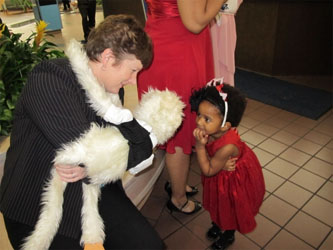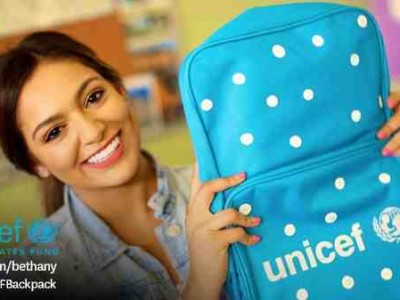
Climate Change: Future of Disadvantaged Children at Stake
Children are already paying a heavy price for the world’s inaction on climate change, UNICEF said.
“The future of today’s children, particularly the most disadvantaged, is at stake,” said UNICEF executive director Anthony Lake, speaking at an event at the 21st United Nations climate change conference in Paris, known as COP21.
“Sadly, we are failing them. Because today’s children are disproportionately bearing the brunt of the effects of our changing climate. They are paying for our failure with their health and safety. With their futures. And too often, with their lives.”
[ What Is the Effect of Climate Change on Children? ]
A UNICEF report ‘Unless we act now – The impact of climate change on children’ points out that climate change brings more droughts, floods, heatwaves and other severe weather conditions, which contribute to the increased spread of major killers of children such as malnutrition, malaria and diarrhoea.
The report also shows that over half a billion children live in areas where floods are extremely frequent, and thus are highly exposed to climate change. Many of those children are in countries with high levels of poverty.
“We can no longer allow our collective inaction on climate change to perpetuate a vicious cycle that condemns the most disadvantaged children to lives with little hope, at the mercy of disasters beyond their control,” Lake said.
In addition to cutting emissions, steps need to be taken to reduce inequities among children, Lake said, citing the need for investments in health and other essential services and in basic infrastructure that can withstand climate-related disasters.
[ Can Your Education Get You the Right Job? ]
“The path the world chooses here in Paris will indelibly mark humanity’s future,” Lake said. “History will judge us. And most importantly, our children will — and should — judge us for our stewardship of the planet they will inherit.”
Lake spoke at an event jointly hosted with the Organisation for Economic Co-operation and Development (OECD), which featured discussions amongst civil society and young people about ways to reduce the impact of climate risks on the most vulnerable children.



